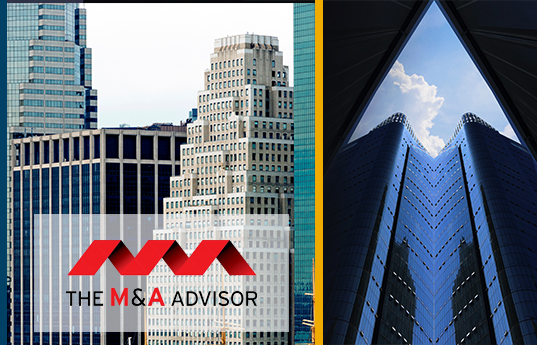2018/10/02
BDA’s Mark Webster speaks to Nikkei Asian Review about Tech IPOs
October 2, 2018
Nikkei Asian Review
China tech companies still favor New York over local bourses
Looser listing rules in Hong Kong and mainland have limited impact
NEW YORK — Like many Chinese initial public offerings before it, news aggregation service Qutoutiao had a strong debut when it hit the market last month. Rather than list in Shanghai or Hong Kong, however, it opted for the Nasdaq — even though most U.S. investors would have a hard time pronouncing its name and few have ever encountered its app.
For many Chinese tech companies, the New York markets — home to Alibaba Group Holding, China’s most valuable listed company — remain the preferred listing venues despite efforts by authorities in China to promote domestic exchanges.
Already the number of Chinese listings in New York this year, nearly all tech-related, is higher than any full year since 2010. Looming ahead is the IPO of Tencent Music, a unit of Hong Kong-listed internet company Tencent Holdings, which is reportedly looking to raise about $2 billion.
Reports of more Chinese tech IPOs in the works in New York have been emerging almost daily.
While many of the recently listed stocks have been volatile — Qutoutiao closed up 128.1% on its first day, Sept. 14, but fell 41.1% on the second — the average listing from China this year was up 17.3% as of Sept. 24, according to data from Renaissance Capital, an IPO-focused fund management and research company.
The flurry of New York deals comes even as both Hong Kong and mainland Chinese market authorities have loosened their IPO standards to try to keep tech listings close to home and draw back those already in New York. While sometimes making appeals to patriotism, officials have also signaled their intention to relax the rules further in the coming months.
Many companies are just not listening. There were only four tech, media or telecommunications listings in Shanghai in the first half of 2018 versus 19 a year before, according to figures from consultancy PwC, while the tally in Shenzhen fell from 39 to 10. The count for Hong Kong was flat at 17, according to consultancy KPMG.
“Listing in China or Hong Kong didn’t even cross our minds,” Aurora Mobile Chief Financial Officer Bong Shan-nen told the Nikkei Asian Review. Aurora, which provides data analysis tools for mobile app developers, raised $77 million in its July IPO on Nasdaq.
Bong, who was previously chief financial officer of a Chinese property developer traded in New York, said that Aurora felt a New York listing would help the company build global brand recognition and recruit non-Chinese data scientists. It would also, he said, give more assurance to investors who prioritize corporate governance standards.
Pinduoduo, the Chinese social shopping site which raised $1.6 billion in a Nasdaq listing in July, made a similar calculation.
“Since our global peers, such as Alibaba, JD.com and Amazon, are already listed in the U.S., it was a natural choice for us to make,” said a company spokesperson.
“Pinduoduo wants to be a global platform and wants to attract the best investors in the world.”
The fact that New York markets are the most capitalized in the world also is a draw. Tim Atwill, who keeps watch on China tech IPOs as head of investment strategy at asset manager Parametric Portfolio Associates, said, “The main motivation is to list on a major exchange with high liquidity, which yields the highest valuations.”
Hong Kong investors favor companies with a track record of stable cash flow and dividends rather than new economy stocks that have yet to earn a profit, said Peng Wang, chief financial officer of Chinese tutoring service Puxin, which listed in New York in June.
“Most U.S. investors are professional and institutional instead of individual, so they will focus on the long-term expectations of your business,” he said. “We believe that investors in the U.S. are well-educated.”
Chua Kee-lock, chief executive of Singapore-based investment fund Vertex Holdings, said: “Investors on the Hong Kong exchange are still very much valuing [shares] based on look-back financial performance versus investors in the New York Stock Exchange or Nasdaq who are willing to value based on future earnings and growth.”
Vertex, a part of state investment company Temasek, has backed a number of Chinese tech companies including bike-share service Mobike and IGG, a game developer which listed in Hong Kong in 2013.
For some Chinese tech companies, the rule changes in Hong Kong and the mainland are just too little, too late.
Uxin, an online used-car trading platform, listed its shares on the Nasdaq in a $400 million IPO in June. The company has so-called dual-class shares, meaning that some of its shares carry extra voting rights, something which has long been allowed in the U.S. Mainland markets do not allow companies with dual-class shares to list. Hong Kong only began allowing some dual-class share companies to list in late April after Uxin’s IPO preparations were well underway.
Hong Kong’s opening for dual-class share IPOs only extends to companies that are “innovative,” have a record of fast growth and an expected market capitalization of at least 10 billion Hong Kong dollars ($1.28 billion), among other requirements.
“It remains to be seen how well this new regime works,” said Wang Hang, a Beijing-based partner in the capital markets practice of law firm Baker McKenzie. His colleague, Yolanda Zheng, added: “The U.S. adopts a disclosure-based and less regulator-centric listing process, and offers more flexibility to companies.”
Along with the dual-class opening, Hong Kong also moved to allow startups that have yet to turn a profit to list, but only those from the biotechnology sector.
The China Securities Regulatory Commission has signaled that it may follow suit on opening a path for dual-class and unprofitable companies to IPO, but without giving any timeline. It has however opened a fast-track IPO approval process for some tech companies. This has allowed a few, including biotech company WuXi AppTec Group and Hon Hai Precision Industry’s Foxconn Industrial Internet unit, to bypass the country’s multiyear waiting list.
However, Chinese regulators have also started rejecting a lot more IPO applications. Mark Webster, managing director of boutique investment bank BDA Partners, said the rejection rate this year had more than doubled to reach 41%. The markets’ review process has been revamped to include a more rigorous examination of company financials, dealings with related parties and other background issues, he said.
Hong Kong and mainland markets are still getting their share of China tech IPOs, however, such as Meituan Dianping’s $4.2 billion listing on Sept. 20 under the new dual-class share rules. Moreover, not everyone is happy with the China tech wave in New York.
The U.S.-China Economic and Security Review Commission noted Beijing’s refusal to allow U.S. regulators to access audit reports of Chinese companies in a report to Congress last November: “This leaves U.S. investors exposed to potentially exploitative and fraudulent activities by Chinese firms listed in the U.S.”
Indeed, the last wave of Chinese listings in New York, which followed the 2008 financial crisis, ended badly for many U.S. investors. At the time, many small Chinese companies bypassed the IPO process by taking over dormant listed companies. This reverse merger boom came apart with accusations of accounting fraud, share-price crashes and delistings, class-action lawsuits, the deregistration of accounting firms and criminal prosecutions.
The standoff between the U.S. and China over accounting enforcement, however, remains unresolved. Alibaba is now under investigation by the U.S. Securities and Exchange Commission over its accounting practices.



